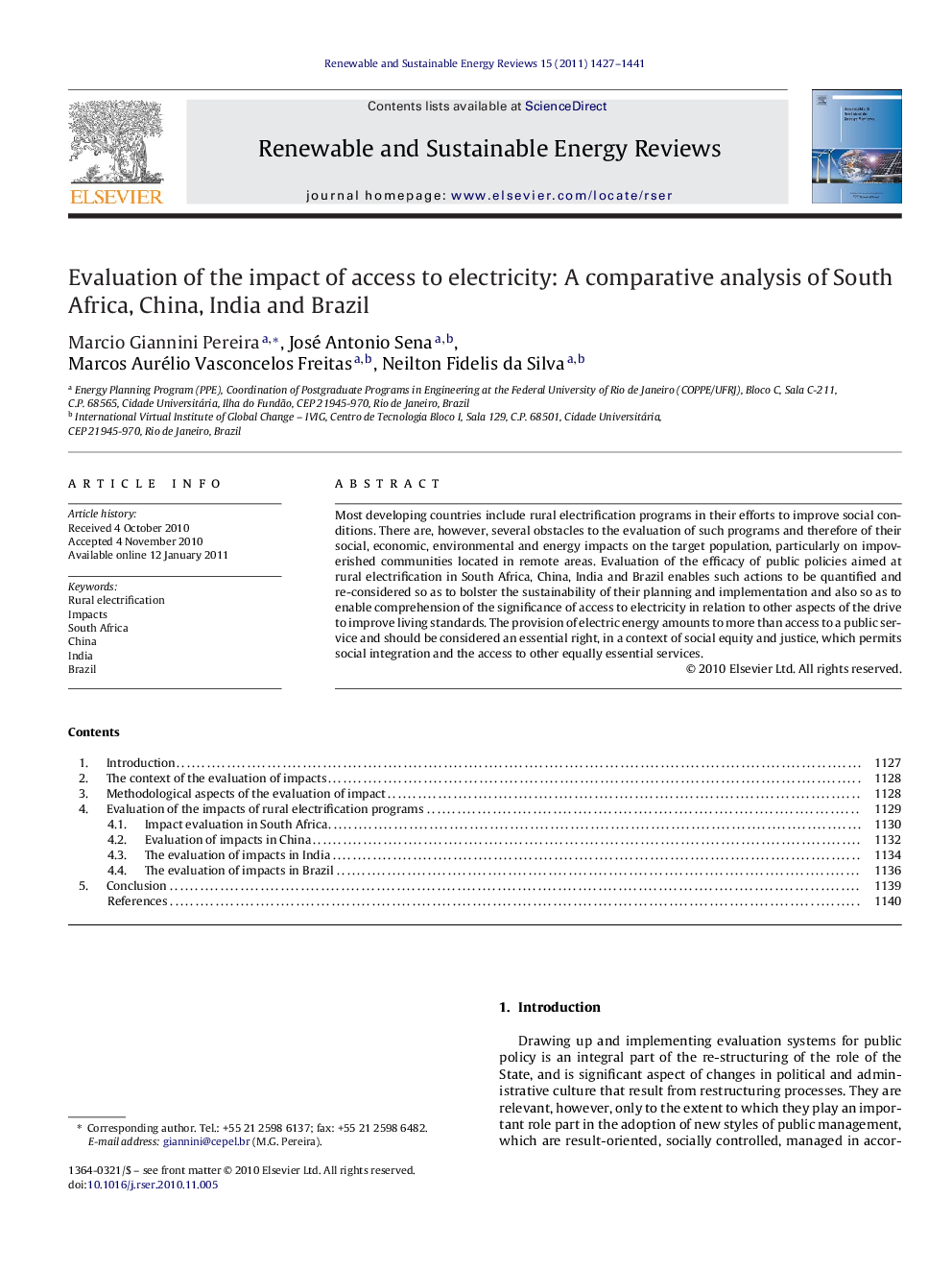| Article ID | Journal | Published Year | Pages | File Type |
|---|---|---|---|---|
| 1751382 | Renewable and Sustainable Energy Reviews | 2011 | 15 Pages |
Most developing countries include rural electrification programs in their efforts to improve social conditions. There are, however, several obstacles to the evaluation of such programs and therefore of their social, economic, environmental and energy impacts on the target population, particularly on impoverished communities located in remote areas. Evaluation of the efficacy of public policies aimed at rural electrification in South Africa, China, India and Brazil enables such actions to be quantified and re-considered so as to bolster the sustainability of their planning and implementation and also so as to enable comprehension of the significance of access to electricity in relation to other aspects of the drive to improve living standards. The provision of electric energy amounts to more than access to a public service and should be considered an essential right, in a context of social equity and justice, which permits social integration and the access to other equally essential services.
